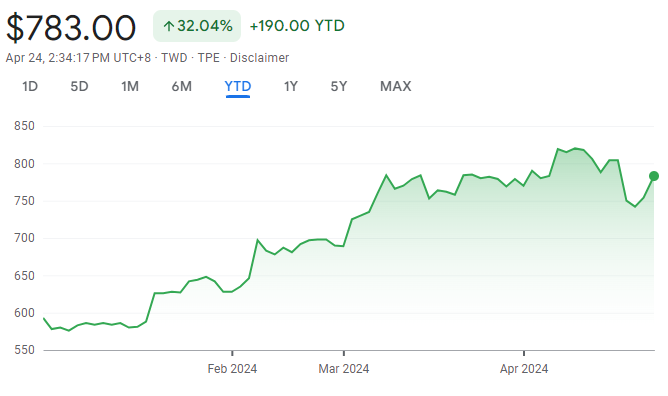Filtering out noise and disregarding short-term headlines are among the hardest challenges facing investors, but it’s where the noise is loudest that skilled fund managers see opportunities instead of pitfalls.
One example of a good investment case undermined by an unhelpful narrative is Taiwan Semiconductor Manufacturing Company (TSMC), according to Paul Flood, co-manager of the £2.2bn BNY Mellon Multi-Asset Growth portfolio.
Investing in China and Taiwan is perceived as particularly risky due to geopolitical tensions in the region, but at the beginning of this year, Flood went against the grain and added to TSMC exactly at peak noise, which he identified as a good entry point.
“During the Taiwanese elections [in January 2024], the narrative around China invading Taiwan led to an opportunity as the valuation came back by a long way,” he said.
“While we are paying 30 times earnings for high-growth US technology companies, we can pick TSMC up for low-to-mid-teens multiples and we’re buying a company that creates most semiconductors that we find in all our products.”
The fund’s weighting to the company went from 1.3% at the end of 2023 to 1.9% as at the end of February 2024, with the position then being worth £41.3m. Since the beginning of the year, the stock has grown 32%.
Performance of stock over the year to date
Source: Google Finance
From Flood’s risk/reward perspective, the scale is still tilted in favour of TSMC.
Approximately 90% of the world's high-end semiconductor content is made in Taiwan. If geopolitical events cut off access to Taiwan’s advanced chips, everything from electric vehicles (EVs) to hedge trimmers would be impacted, as the scarcity at the high-end of the market would trickle down through the whole supply chain, including to lower-quality chips.
“If China does invade Taiwan, TSMC is going to be the least of our problems, it will impact all other companies that we invest in on a global basis,” he said.
“If you can't get semiconductor content, how are you going to build things? Apple won’t be able to build mobile phones, Microsoft isn’t going to build out the cloud, and Volkswagen will stop making cars. Semiconductor content powers the world.”
Taiwan’s flagship also stands to benefit from competition between the great powers to ensure the security of semiconductor supply.
“TSMC has tax benefits and subsidies around the world as the US, Japan and Europe need to power everything from EVs but also the military side of things as well,” he noted.
Earlier this month, the US government announced a $6.6bn grant to help TSMC build three factories in Arizona.
Another area where Flood is poised to take advantage of market noise is the US, particularly around the upcoming elections and the future of the Inflation Reduction Act, with its subsidies for US industry.
“We've seen a lot of noise about reducing or getting rid of the Inflation Reduction Act and there's a lot of being said about the differences between Donald Trump and Joe Biden, but there are also a lot of similarities,” he said.
“For example, they are both big spenders, so we don't think that the outcome of the election will change the fiscal debate in the short term. The same capital and the same spending would just be allocated somewhere else. But Republican states are some of the biggest beneficiaries of the Inflation Reduction Act and we think it could be quite hard to unwind that.”
In the US, Flood is particularly bullish on home builders, with the market having “massively underestimated the changing business model” in the sector, as he recently told Trustnet.




